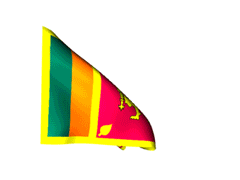Briefs on International Trade (BIT) 2022/[12] - Overview of the Market Opportunities
23rd September 2022
Introduction
Among the products that Sri Lanka exports to Egypt, it is undoubtedly Ceylon Tea holds the lead for the past several years. The demand for Ceylon Tea and the preference of Egyptians to consume the black tea always pave the way for this commodity to enter this market even though there is a huge competition from the Kenyan Tea. It may be noted that 80% of the tea market is dominated by Kenyan Tea and Ceylon Tea only holds approximately 4% of the market share. It is also notable that Kenyan Tea enters this market under 0 duty while the import of Ceylon Tea has to undergo a 2% of customs duty.
When the export basket of Sri Lanka to Egypt is closely monitored it will reveal that for a longer period of time Sri Lanka depends on the same type of products such as Ceylon Tea, Spices, Apparel, Rubber products, Coconut-related products, etc. Even though the export basket of Sri Lanka to Egypt be diversified, considering the current situation it is worthy to identify what are the existing products that Sri Lanka could be exported to Egypt more or in higher quantities.
Accordingly, in this brief overview, it is envisaged to identify such products that Sri Lanka already exports to the Egyptian market and the product which could be increased its quantity of exports more. In this context, three main commodities were identified. Those are Desiccated Coconut (HS code 080111), Activated carbon (HS code 380210), and Coco Peat (HS code 530500)
Desiccated Coconut (HS code 080111)
Egypt is a country that consists of a population of 110 million. (approximately) It is well known that most Egyptians prefer to consume confectionary items, especially during the festival seasons. In preparation of most of the confectionary items, Egyptians are using coconut-related products, especially desiccated coconut as an ingredient. However, the supply of the ingredient is not fulfilled within the country and as a result , Egyptians tend to import those.
The real opportunity for the Sri Lankan products (Desiccated Coconut) arises due to this. Mainly Egypt imports Desiccated coconut from the countries such as Vietnam, Indonesia, Sri Lanka, the Philippines, etc. the below table clearly evidences the import value of Desiccated coconut by Egypt during the last five years.
Although Sri Lanka is among the first three countries as import partners of the product of Egypt, it is undisputed that Sri Lanka could do more in this sector due to its capacity and the product quality. In most cases, though Indonesia and Vietnam are dominated the market Sri Lanka also could perform well in this sector since the quality of the product is well ahead of the products imported from the aforementioned countries. The unofficial information received from the grass-root always reveals that the products imported from Sri Lanka are more appealing than the competitor's products. However, most Egyptian buyers are reluctant to engage in trade deals with Sri Lankan suppliers due to the inability of price matching to this market. This is the main reason that hinders the availability of the Sri Lankan products in this market.
The below table shows the level of imports of Desiccated coconut by Egypt from overseas countries. it explains the current situation of Sri Lanka in exporting the product to Egypt. Further, it shows where the competitors are also. It may be noted that by identifying more trading partners Sri Lanka could perform well in the sector in the future. Therefore, the main concern of the Egyptian buyers, the price should be addressed at the earliest.
DOWNLOADS
Briefs on International Trade (BIT) 2022/[11](PDF)
News TopSolution by Nidro IT Solutions
All rights Reserved. Sri Lanka Shippers Council



